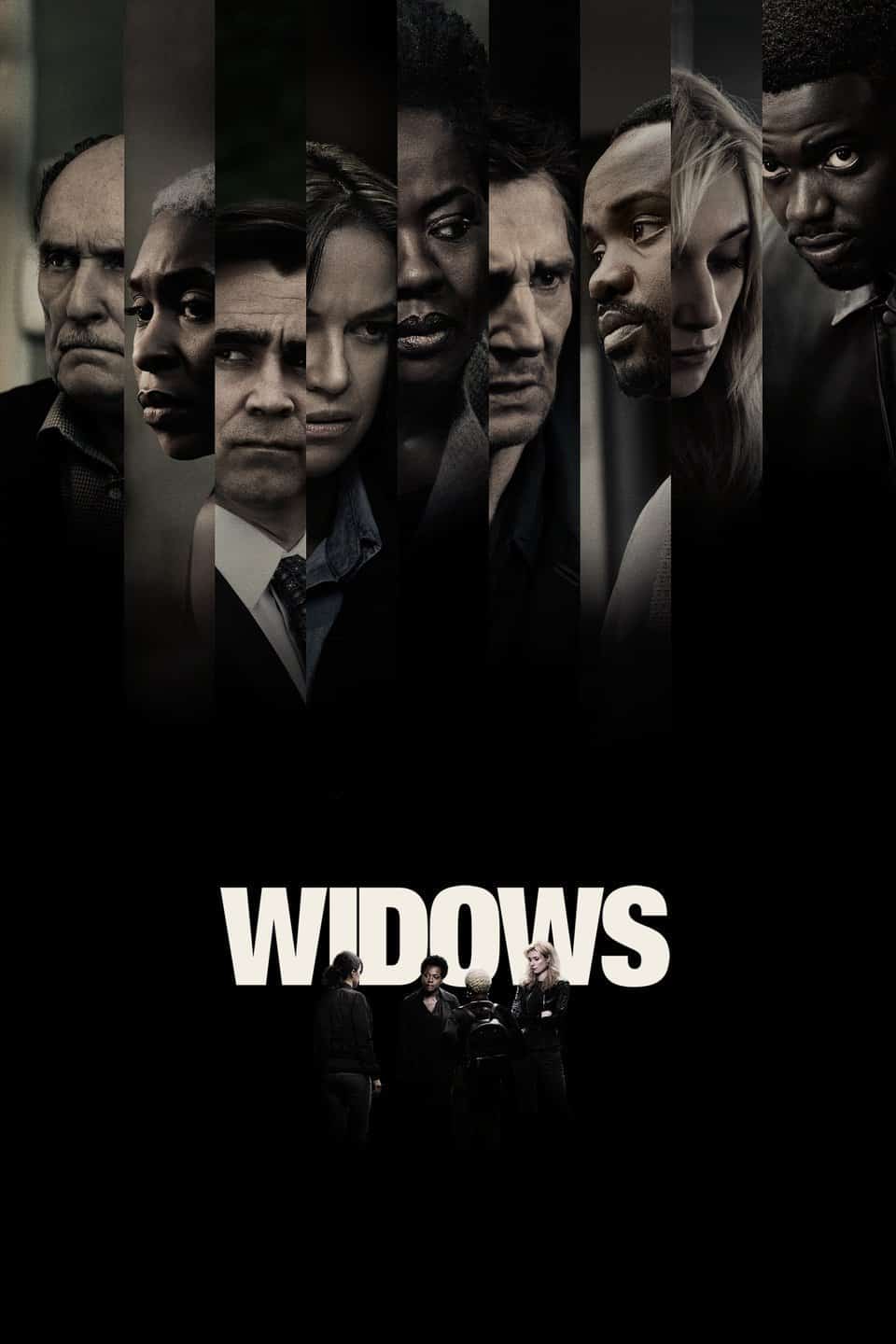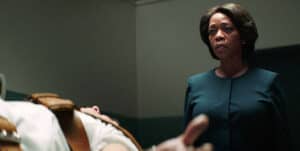
Steve McQueen and Gillian Flynn’s new film Widows is equal parts character study, heist film, and political thriller. Based on the 1983 series of the same name, Widows centers on four women who become widowed after their partners die during a heist gone wrong. Set in a low-income neighborhood in Chicago, the film also details a local election for Chicago City Council—and the ways each widow’s story parallels the major players in the election. To what lengths will the characters go to obtain money, or power? Why do some have to fight harder, while others can seemingly coast? Each character must grapple with their morality and identity, deciding who they will become after either the heist or the election.
So why did such a compelling film perform so poorly at the box office?
Let’s examine, first, what Widows had to offer potential audiences. From its inception, Widows stacked the deck with talent: directed by Academy Award winning director Steve McQueen, (known for critically lauded art house fare, as well as box office and awards season success 12 Years a Slave) and written by Gillian Flynn (author of the novels behind screen adaptations of both Gone Girl and Sharp Objects).
With a mix of edgy, up-and-coming talent and reliable screen veterans, Widows boasts a solid amount of Hollywood’s best, making it a veritable awards season Valentine’s Day. Legend Viola Davis, one of film’s most respected and bankable stars, leads the cast. She is followed by action star Michelle Rodriguez and promising newcomer Elizabeth Debicki, who was most recently seen in the heavy but powerful HBO film The Tale earlier this year. Joining the three of them are Tony winner Cynthia Erivo, in one of her many recent stage-to-film crossover projects, and one of the most lauded actresses working in television during its self-proclaimed golden era, Carrie Coon of The Leftovers, Fargo, and Season Two of The Sinner.
And those are just the leading female characters. Additionally, film veterans Robert Duvall, Liam Neeson, and Colin Farrell appear in the film, not to mention spectacular supporting turns from Daniel Kaluuya and Jacki Weaver. Collectively, the listed cast has been nominated for a combined 12 Oscars, and have won two. They’ve also won three Tony awards, with four additional nominations. In other words, a stellar cast.
After viewing the film myself, I asked some friends of mine what they thought about Widows. To my dismay, they responded they hadn’t heard of the movie. After telling them about the high-caliber talent and relaying the basic plot, my friends immediately said they would be interested in seeing it.
So why hadn’t my friends gone to see Widows? Because they hadn’t heard of it.
The marketing team for any movie has multiple objectives, including, most obviously, telling people that the movie exists. But the marketing team is also responsible for helping potential viewers to understand why they should care about a film.
One issue with the marketing for Widows was in promoting it as prestige film-awards season fodder. While this is partially true, the film is also, at its heart, a heist film. Another difficulty seemed to be in pinpointing a potential target demographic: Communities of color could be drawn to the diverse casting; film snobs could be interested in the high caliber of talent; action film lovers could be interested in the heist; and those who love political thrillers could be intrigued by the film’s game of political cat and mouse. The list of potential demographics goes on…so why did none of the advertising, apparently, work?
Part of the film’s box office disappointment could be that the film is so multifaceted, some of the benefits cancel each other out. Sure, it’s a heist film, but it’s also supposed to be an awards season contender? Yeah, it’s a drama, but will it be “dumbed down” with too much action? It has a diverse cast, but then why are there so many white guys? Is the film studio simply pandering to communities of color? My favorite actor is in it, but will she get much screen time with so many famous actors in the lineup? These types of apparent contradictions can prove difficult to bypass in spreading the word of a good film.
One notable aspect of the marketing for Widows was that the trailers seemed to attempt to use a similar strategy to The Hunger Games: set up the film’s premise, but without showing much, if any, footage from the second or third acts. This strategy worked for The Hunger Games, a true three-act film, because so much tension is built at the beginning. Widows, in contrast, benefits from a slow burn, with plot elements being slowly revealed over time. Thus, without an understanding of the gravity of the situation being presented, in watching the trailers Widows feels like a heist film with no stakes.
Widows is not a forgettable film. It is complex, pausing at just the right times to take in profound moments. It functions like a good game of cards: one can enjoy it on the surface level without much engagement (Fun concept! Cool reveals!), or, one could pay more attention and engage with some of its deeper nuances: political commentary, relationships between women, and power dynamics at play in a sociopolitical sphere. Either way, viewing Widows is a rewarding experience—which is exactly what most people are looking for when they go to the movies. It’s a shame that the marketing strategies for Widows didn’t do the film the justice it deserved.
 Joe Tatum is the Philadelphia City Director for City Service Mission, a long-term volunteer with CineSPEAK, an Oriented to Love alumnus, and an avid consumer of high-quality film.
Joe Tatum is the Philadelphia City Director for City Service Mission, a long-term volunteer with CineSPEAK, an Oriented to Love alumnus, and an avid consumer of high-quality film.


